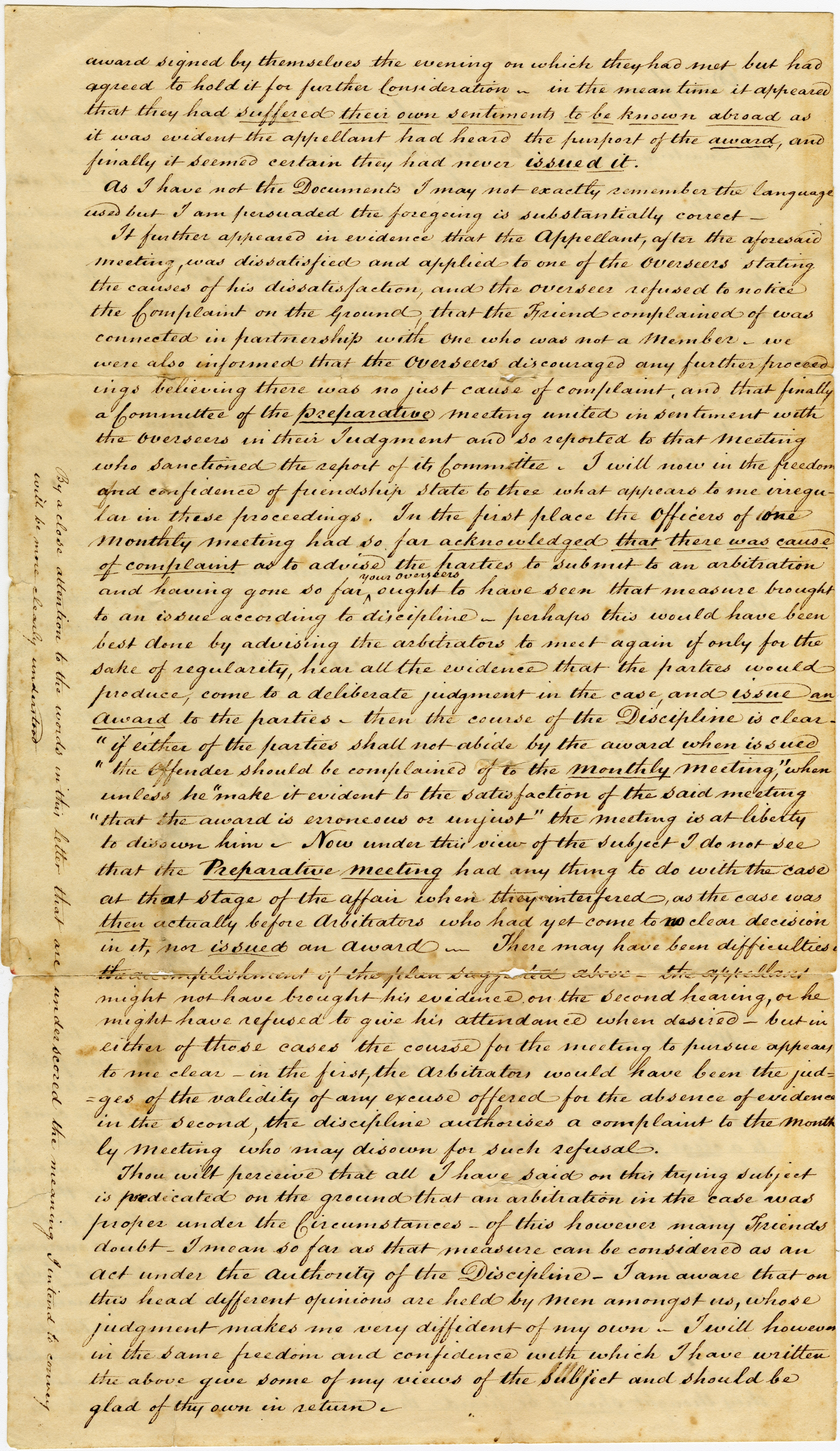award signed by themselves the evening on which they had met but had
agreed to hold it for further Consideration. in the meantime it appeared
that they had suffered their own sentiments to be known abroad as
it was evident the appellant had heard the purport of the award, and
finally it seemed certain they had never issued it.
As I have not the Documents I may not exactly remember the language
used but I am persuaded the foregoing is substantially correct.
It further appeared in evidence that the Appellant, after the aforesaid
meeting, was dissatisfied and applied to one of the overseers stating
the causes of his dissatisfaction, and the overseer refused to notice
the Complaint on the ground that the Friend complained of was
connected in partnership with one who was not a member. we
were also informed that the overseers discouraged any further proceed
ings believing there was no just cause of complaint, and that finally
a Committee of the preparative meeting united in sentiment with
the overseers in their Judgment and so reported to that meeting
who sanctioned the report of its Committee. I will now in the freedom
and confidence of friendship state to thee what appears to me irregu-
lar in these proceedings. In the first place the officers of one
monthly meeting had so far acknowledged that there was cause
of complaint as to advise the parties to submit to an arbitration
and having gone so far your overseers ought to have seen that measure brought
to an issue according to discipline. perhaps this would have been
best done by advising the arbitrators to meet again if only for the
sake of regularity, hear all the evidence that the parties would
produce, come to a deliberate judgment in the case, and issue an
award to the parties. then the course of the Discipline is clear-
"if either of the parties shall not abide by the award when issued
"the Offender should be complained of to the monthly meeting," when
unless he "make it evident to the satisfaction of the said meeting
"
that the award is erroneous or unjust" the meeting is at liberty
to disown him. Now under this view of the Subject I do not see
that the Preparative meeting had any thing to do with the case
at that stage of the affair when they interfered, as the case was
then actually before arbitrators who had yet come to no clear decision
in it, nor issued an award. There may have been difficulties in
the accomplishment of the plan suggested above - the appellant
might not have brought his evidence on the second hearing, or he
might have refused to give his attendance when desired - but in
either of those cases the course for the meeting to pursue appears
to me clear - in the first, the arbitrators would have been the jud-
ges of the validity of any excuse offered for the absence of evidence
in the second, the discipline authorises a complaint to the month
ly meeting who may disown for such refusal.
Thou will perceive that all I have said on this trying subject
is predicted on the ground that an arbitration in the case was
proper under the Circumstances of this however many Friends
doubt. I mean so far as that measure can be considered as an
act under the authority of the Discipline. I am aware that on
this head different opinions are held by men amongst us, whose
judgment makes me very diffident of my own. I will however
in the same freedom and confidence with which I have written
the above give some of my views of the subject and should be
glad of thy own in return.
By a close attention to the words in this letter that are underscored the meaning I intent to convey
will be more clearly understood

